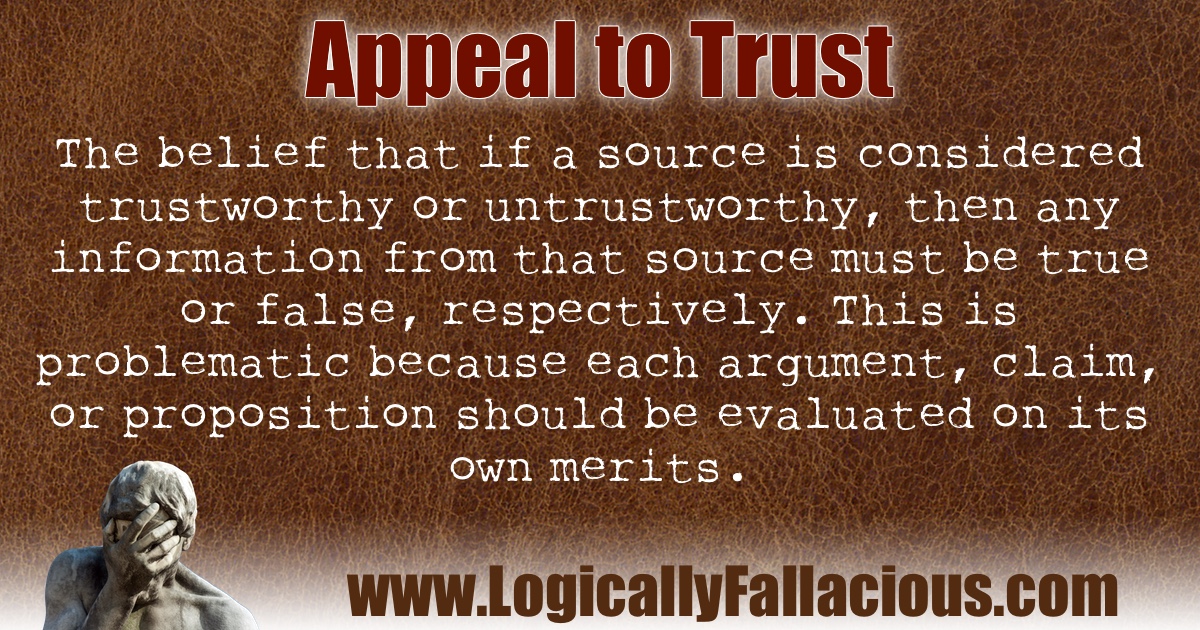(also known as: appeal to distrust [opposite], appeal to trustworthiness)
Description: The belief that if a source is considered trustworthy or untrustworthy, then any information from that source must be true or false, respectively. This is problematic because each argument, claim, or proposition should be evaluated on its own merits.
This doesn't include trusting in someone or something. For example, when we trust our children that they will make the right decisions in a certain situation, we are not using fallacious reasoning. When we trust that our seat belts will work when they need to, we are not using fallacious reasoning. When we trust that our puppy will leave us a gift on the carpet if we don't let him out by 7:00 AM, we are not using fallacious reasoning. When we express trust in someone, we are essentially expressing a degree of confidence, not making an absolute claim of something being true or false.
Logical Forms:
Source X is a trusted source of information.
Claim Y was made by source X.
Therefore, claim Y must be true.
Source X is a distrusted source of information.
Claim Y was made by source X.
Therefore, claim Y must be false.
Example #1:
I read in the Wall Street Journal that pork bellies are a good investment. So could I borrow a million dollars to invest?
Explanation: The Wall Street Journal could reasonably be seen as a trusted source (it doesn't matter if you agree or not, as long as the arguer thinks it is). In this case, the information appears to be more of an opinion than a fact—and an investment prediction, which by its nature is risky and therefore its truth value is questionable.
Example #2:
Cindy: I read in the Global Enquirer that Bingo Kelly, the famous movie star, is in rehab.
Jack: That's poppycock! You can't trust the Global Enquirer any more than you can trust a toddler with a nail gun.
Explanation: The Global Enquirer might not be known for its high-quality journalism and truthful reporting. However, even the most untrustworthy sources sometimes share true information. While it might be a good heuristic (rule of thumb) to be highly skeptical of any claims from such an untrustworthy source, such claims cannot be so confidently dismissed without a good reason.
Exception: As long as one is claiming a degree of confidence instead of assuming true or false, there is no fallacy. Trustworthiness does impact the level of confidence one should have, but not certainty.
Tip: Try to keep your level of confidence proportionate to your level of trust.

References:
This a logical fallacy frequently used on the Internet. No academic sources could be found.
Questions about this fallacy? Ask our community!